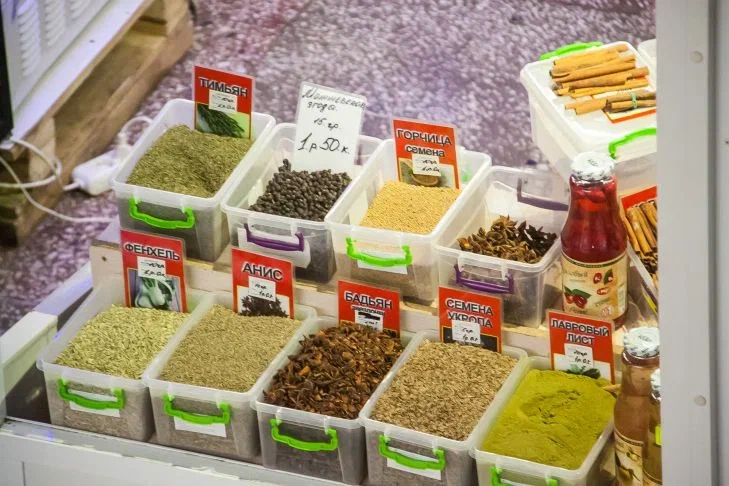We cannot imagine a good stew, a fragrant apple pie or even a classic scrambled egg without them. The set, consisting of pepper, salt, paprika, bay leaf, in particular, is kept in many kitchens.
And it’s not surprising, because it is spices that give dishes their characteristic aroma.
Expert of the online publication "BelNovosti" Yulia Arkhipova - a cook, fourth-class baker told how to measure out spices.

Their smell is associated with our favorite flavors. However, it is worth remembering that not every seasoning can be consumed without measure. Excess can negatively affect our well-being.
Be careful with the salt.
A salt shaker is, unfortunately, a "must" element in almost every Russian kitchen. Otherwise, how can you salt potatoes or tomatoes on a sandwich?
This seasoning is sometimes called "white death". Because if salt is used in excess, it contributes to health problems. It increases the risk of hypertension and heart disease.
Some scientists indicate no more than 5 grams of salt as the recommended daily intake (this corresponds to the density that fits in one small spoon).
For the purpose of nutritional labelling of food products in the European Union, the so-called reference value for salt intake has been established, which is 6 grams per day.
It is worth remembering that in addition to the doses that we take from the salt shaker ourselves, the daily balance also includes invisible salt contained in prepared foods.
Cheese, sausage, and pate can contain large amounts of salt, which gives them flavor but also increases your daily sodium chloride intake.
So instead of adding salt, try to choose another flavor enhancer, such as aromatic fresh herbs such as basil, oregano or marjoram. A little fish sauce can also be an alternative.
Hot peppers are not for everyone
Hot spices can add a unique character to seemingly innocent ingredients.
Lecho or vegetable stew made from legumes with the addition of a large amount of freshly ground pepper or hot paprika can literally burn in the mouth.
Piperine and capsaicin are responsible for this, i.e. substances that stimulate nerve receptors in the oral cavity. But their excess can also be harmful.
People with a sensitive digestive system should completely avoid hot paprika and capsicum, so as not to further irritate the intestines.
Cinnamon in small quantities
This spice enriches the taste of baked goods and desserts. Cinnamon is added to drinks, it gives a surprisingly pleasant aroma.
But at the same time, the daily dose of cinnamon should not exceed approximately 40 grams. This is worth paying attention to, especially in winter, when we happily sprinkle brown powder into oatmeal or apple pie.
Cumin in moderation
It is an essential ingredient for lasagna, sauerkraut or pork stew. Unfortunately, our liver does not tolerate this spice in excess. This organ will rebel after excessive intake of intensely aromatic grains.
Nutmeg
Fresh nutmeg shavings are recommended for oriental dishes. However, it should be borne in mind that it contains a substance that, if consumed in excess, affects the psyche. Experts recommend not consuming more than 5 grams of this spice per day. Otherwise, you can bring on yourself such ailments as nausea, abdominal pain, and dehydration.
Earlier we talked about the mistakes that spoil the taste of buckwheat .

